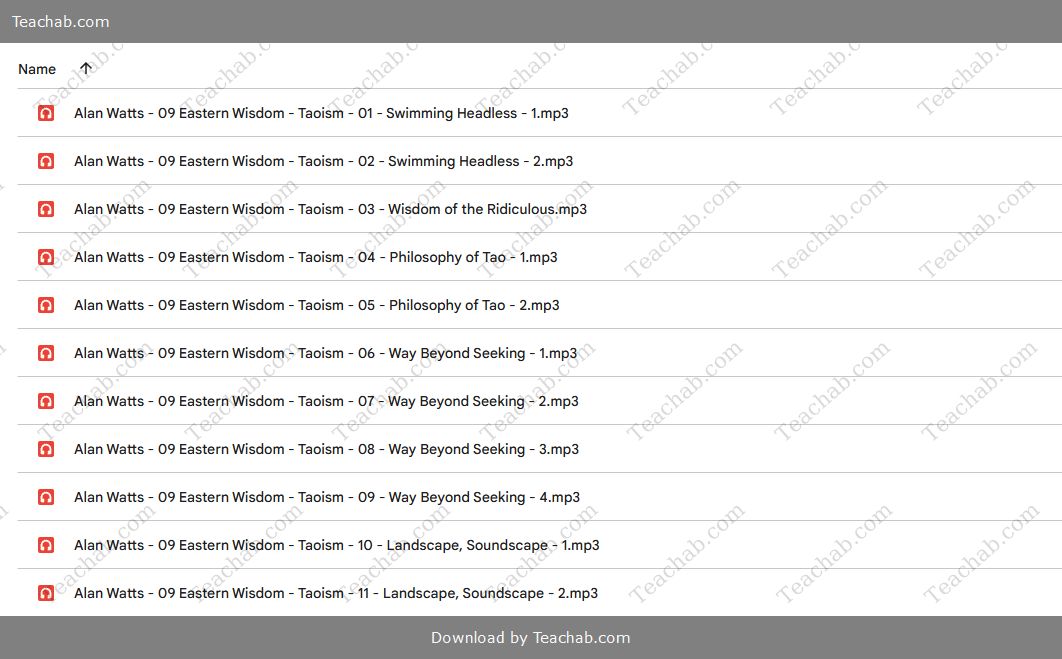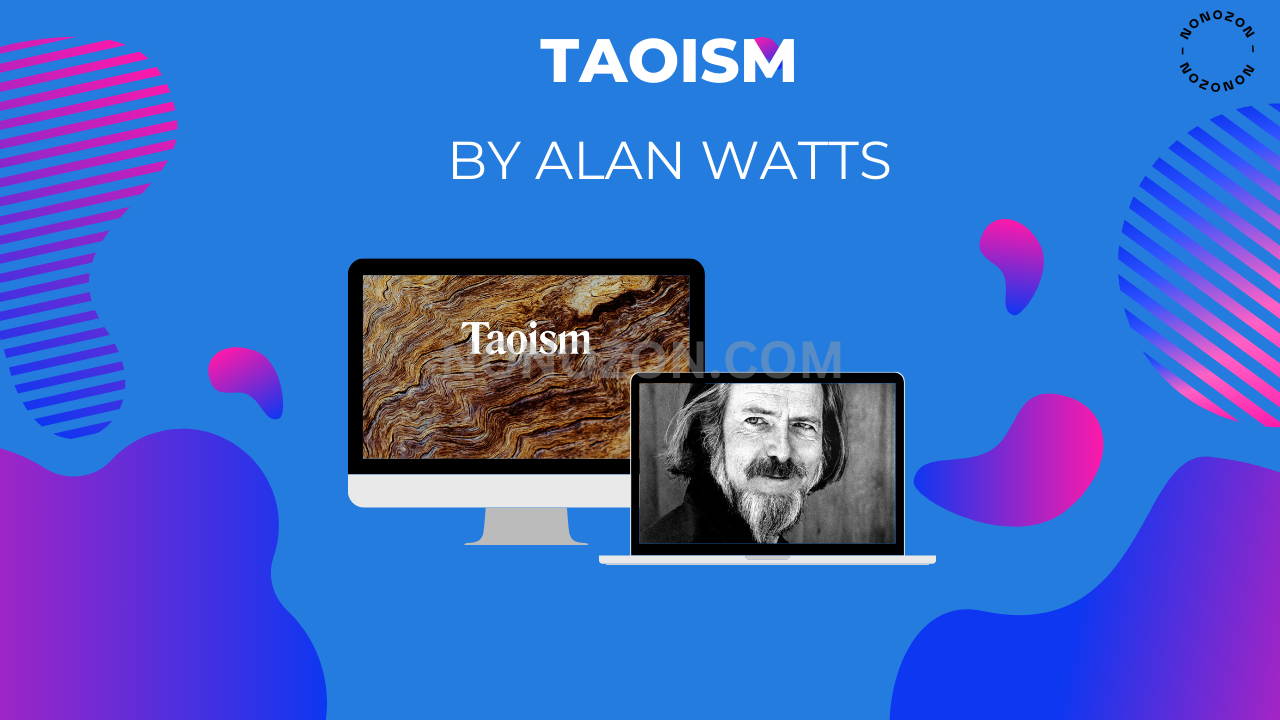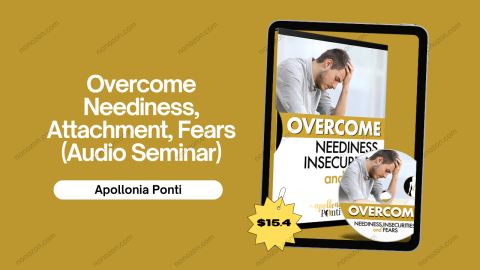Taoism
by Alan Watts
Get Taoism by Alan Watts Digital Download
You can check proof of content here

Taoism by Alan Watts
Overview

An Introduction to Taoism Through the Lens of Alan Watts
Alan Watts’ exploration of Taoism in his book Tao: The Watercourse Way offers a compelling and thought-provoking introduction to this ancient Chinese philosophy. With his unique style, Watts presents Taoism in a way that resonates with a Western audience, demystifying concepts like the Tao, wu-wei, and yin and yang. His ability to explain these profound ideas in relatable terms bridges the gap between Eastern traditions and Western understanding, making them accessible and engaging for modern readers.
In Tao: The Watercourse Way, Watts offers readers a succinct and enlightening 128-page introduction to Taoist thought. At its core, the text begins with a central concept—the Tao, often described as "the way" or "the natural way." Watts highlights that the Tao is something beyond the capacity of language, a point famously captured in the Tao Te Ching’s opening line: “The Tao that can be spoken is not the eternal Tao.” This reflects the philosophy’s emphasis on the ineffable nature of ultimate reality, an idea that Watts thoughtfully revisits throughout his work.
Embracing the Flow of Life: The Concept of Wu-Wei
One of the most central concepts Watts discusses is wu-wei, often translated as "non-action" or "effortless action." This principle advocates for a way of life that aligns with the natural course of things, promoting a form of living where effort and struggle are minimized. Watts uses vivid metaphors to illustrate that instead of struggling against the current, one should allow life to flow naturally, like drifting downstream. This idea of "effortless action" suggests that peace and fulfillment come not from forcing things into existence but from allowing them to unfold in their own time.
Watts brings the concept of wu-wei to life by comparing it to the movement of water, which flows effortlessly, gradually shaping its path through obstacles. This simple yet profound analogy suggests that one can experience life with less stress by relinquishing control and trusting in the natural progression of events. Wu-wei, therefore, is about aligning oneself with life’s rhythms, letting things come to fruition in their own time without undue interference.
Balancing the Dualities: Understanding Yin and Yang
Another key theme in Watts’ interpretation of Taoism is the concept of yin and yang. This idea illustrates the inherent balance and interdependence of opposites within the universe. Watts explains that opposites such as light and dark, soft and hard, are not separate entities but are instead complementary forces that sustain one another. Their interplay is fundamental to the Taoist understanding of the world.
For example, without darkness, light would not have meaning, and without hardness, softness could not be appreciated. Watts emphasizes that understanding and accepting these dualities within both nature and ourselves allows for greater harmony in life. By recognizing and embracing the balance of these forces, individuals can achieve a more integrated and holistic experience, cultivating peace through a deeper understanding of life’s complexity.
Nature as a Source of Wisdom and Guidance
An important aspect of Watts’s interpretation of Taoism is the recognition of nature as a source of wisdom and guidance. He advocates for a life that flows in harmony with the natural world, instead of attempting to dominate or alter it. Watts suggests that one should not only observe nature but learn from it, seeing it as a teacher that offers profound insights into how we should live.
This principle is embodied in the lifestyle of Taoist hermits, who often withdrew from society to live in simplicity and connect more deeply with nature. By immersing themselves in the rhythms of the earth, these individuals found spiritual wisdom that reinforced the Taoist belief that nature should guide human behavior. Nature, as Watts depicts, is not merely a backdrop for human activity but an essential teacher in the pursuit of balance and wisdom.
Watts' Prose: Making Complex Ideas Accessible
One of the remarkable features of Watts's writing is his ability to explain complex philosophical concepts with clarity and elegance. His use of accessible language and relatable metaphors makes Taoism comprehensible even for those unfamiliar with Eastern philosophies. By blending Eastern thought with Western sensibilities, Watts fosters an environment for dialogue and understanding.
For instance, when explaining the Tao, he compares it to water—an element that flows effortlessly, overcoming obstacles with grace. Similarly, when describing wu-wei, he might reference the smooth, fluid movements of a dancer, showing how ease and harmony are central to Taoist practice. These comparisons not only illuminate difficult concepts but also encourage readers to experience them in terms of their own lives.
Main Insights from Tao: The Watercourse Way
The following key concepts from Tao: The Watercourse Way encapsulate the essence of the Taoist philosophy as presented by Alan Watts:
The Tao: Described as "the way," the Tao represents the ultimate truth, beyond the reach of language and direct description.
Wu-Wei: The principle of non-action or effortless action, encouraging harmony with the natural flow of life.
Yin and Yang: Acknowledging the interdependence of opposites and their critical role in maintaining universal harmony.
Nature as Guide: Promoting a lifestyle that aligns with the natural world, recognizing it as a source of wisdom and balance.
Approachability of Ideas: Watts' clear and engaging writing style makes Taoist philosophy accessible to readers without prior knowledge.
Final Thoughts: A Timeless Invitation to Harmonious Living
In conclusion, Alan Watts' Tao: The Watercourse Way serves as an excellent introduction to Taoism, offering readers a pathway into one of the world’s oldest and most profound philosophies. Through his use of simple, evocative metaphors, Watts brings the principles of the Tao, wu-wei, and yin and yang to life, offering a deeper understanding of how to live in harmony with nature and the universe. These insights are especially relevant today, as they encourage peace, balance, and connectedness in an increasingly complex world. For anyone interested in Eastern philosophy through a Western lens, Watts’ work remains an invaluable guide to living in alignment with life’s natural flow.
Related products

Making Contact, Satir Process, Personal Workbook, Forgiving Parents PDF bundle
by Virginia Satir
$100.00
$38.50

Overcome Neediness, Attachment, Fears (Audio Seminar)
by Apollonia Ponti
$129.00
$15.40


